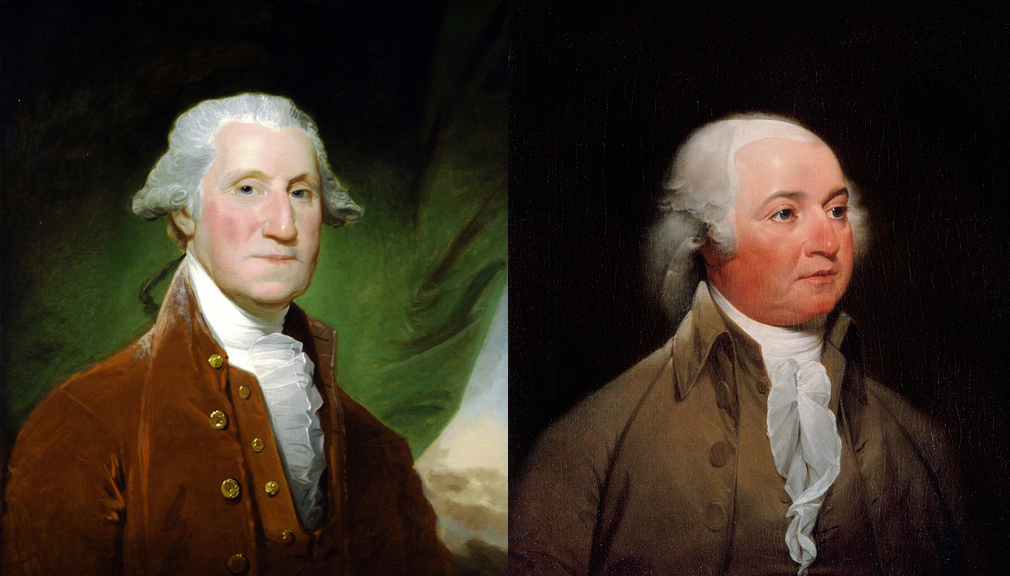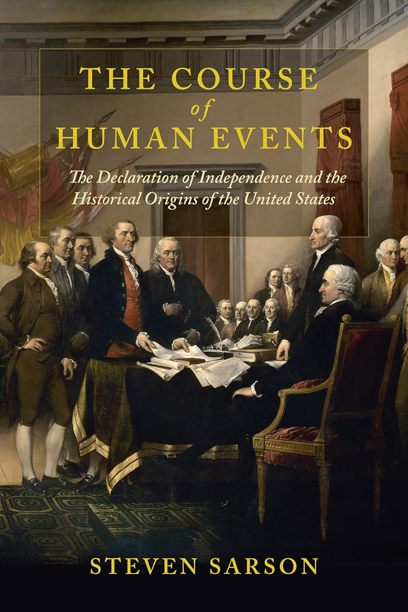George Mason: The Founding Father Who Gave Us the Bill of Rights by William Hyland, Jr. (Regnery, 2019)
Most people have never heard of George Mason; those who have are either students of the American Revolution or people who live in the state of Virginia—and even then the only thing they may know about him is that he refused to sign the Constitution at the end of the Convention of 1787. In his newest book, George Mason: The Founding Father Who Gave Us the Bill of Rights, William Hyland, Jr. throws open the doors of Gunston Hall and introduces the reader to the real George Mason. In the course of this book the reader will learn:
• that he was not a man who possessed the “Indomitable Presence” of George Washington, the oratory skills of Patrick Henry, the reputation of Benjamin Franklin, the prolific writing skills of Alexander Hamilton or the legislative skills of James Madison;
• that he never became a president, vice-president, cabinet secretary, governor or ambassador;
• that he did not sign the Declaration of Independence, the Treaty of Paris or the United StatesConstitution;
• that he refused an appointment to the Continental Congress, after three years gave up his seat in the Virginia House of Burgesses, and following the ratification of the Constitution declined the offer by the Virginia Ratification Convention to be one of the Virginia’s Senators in the first United States Congress;
• that he never sought public office, travelled only once outside of Virginia, placed his family first before everything else, and ultimately suffered the loss of a thirty-year friendship with George Washington over his convictions at the Convention of 1787.
Who then was George Mason and why should he be considered a Founding Father on any level? Hyland does an outstanding job of explaining how Mason’s mother shaped his character and his uncle, with the assistance of tutors and an extensive library, shaped his mind, how his wife was the perfect complement to him and how Gunston Hall and his estate were an extension of his person.
George Mason developed a broad and deep understanding of systems of government, the rights of man, liberty, and political theory. Hyland intertwines the writings of Mason with the political events that unfolded around him. He was either the author or co-author of several important documents: the Virginia Non-Importation Resolutions (1769), Fairfax Resolves (1774), Virginia Declaration of Rights (1776), the Virginia Constitution (1776), parts of the federal Constitution and Objections to the Constitution of Government formed by the Convention (1787). The first four were colony-specific but would become models for the other colonies; the last two were national. Hyland explains how Mason’s Virginia Declaration of Rights became the primary influence on Thomas Jefferson when he drafted the Declaration of Independence and was central to all of his future writings and convictions. Using extensive research, Chapters 10, 11, and 13 tell the story of George Mason’s efforts better than anything this reviewer has ever read about the man. At the end of Chapter 13 the reader will understand why Mason did not sign the Constitution—the document did not guarantee that each citizen’s natural rights would be protected under it and did not adequately limit the powers of the executive. In his Objections to the Constitution, seven of the seventeen objections were related to these two issues. Thanks, however, to George Mason’s perseverance, not only at the Convention in Philadelphia but also at the Convention in Richmond, the Bill of Rights was adopted three years later. Those rights would become the first ten amendments to the Constitution.
At the end of the book, this reviewer was left asking the following questions:
1) Why couldn’t Mason and Washington agree to disagree and reconcile after the Constitution was ratified?
2) Did Mason wait too long before he made a motion to add a declaration of rights to the document? It is clear the members were tired and wanted to go home and any further deliberations could have extended the convention another week or two.
3) How did the words “herein granted” get into Section I of Article I of the Constitution—“All legislative Powers herein granted shall be vested in a Congress of the United States, which shall consist of a Senate and a House of Representatives.”? On September 8, the Committee of Style and Arrangement was created and given the task of condensing and cleaning up the document that had been constantly changing so an official draft could be reviewed formally on September 12. The two words had been inserted sometime during those four days, but during the document’s review no one seems to have noticed them. Who made the decision to add them? Did Mason convince Gouverneur Morris, the principal writer of the committee, to insert them; did James Madison, a member of the committee, think by their addition they might bring Mason to sign the document; or was there another explanation? In any case, they changed the document forever.
This book is well worth a reader’s time and will become the go-to book on George Mason, the first great statesman of Virginia and the first great political philosopher of the United States, for many years.
PURCHASE THIS BOOK FROM AMAZON
(As an Amazon Associate, JAR earns from qualifying purchases. This helps toward providing our content free of charge.)









2 Comments
Thanks for the great review !!
If this author’s review is an accurate reflection of what is in the book, the book fails to address a critical issue that shaped Mason’s political views: slavery. Mason owned almost one hundred men, women, and children. In Fairfax County, only George Washington owned more slaves than Mason. Although Mason did author the VA Declaration of Rights, his opposition to the US Constitution was about much more than the lack of a US Bill of Rights. He was interested in protecting VA’s interests under the new government. He opposed Congress’s control over exports and commercial treaties. He thought the executive had too much power.. He was also deeply disappointed that the new government would not end the international slave trade immediately–not because he opposed slavery in principle (he was no abolitionist) but because he abhorred the effect of slavery on white people and wanted to preserve the value of his own human property. I really doubt that this will become the “go-to” book on Mason. Jeff Broadwater’s book, though flawed, at least discusses slavery.